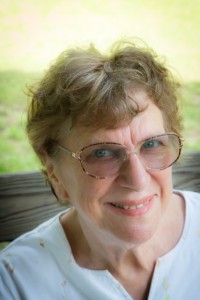
A Second Opinion Can Dramatically Change the Course of Cancer Treatment
-
In 2011, Jean Hankee noticed a strange-looking vein on her right shin. At first, she said it looked like an “empty” varicose vein.
“I thought it was just something that happened as I was getting older,” said Jean, who was 71 at the time.
During her yearly wellness visit, she showed the vein to her general practitioner and he suggested she see a dermatologist. The dermatologist performed a biopsy, and within two weeks the call came. “They told me it was a myxoid sarcoma,” she remembered. “My dermatologist referred me to an oncologist at a hospital about 25 minutes from my home where I had my first surgery,” Following that surgery, Jean began a course of radiation therapy, but, unfortunately, a lump appeared at the site.
The Hankee family had a good track record with Fox Chase. About 12 years earlier, Jean’s husband of 52 years, Eugene, was successfully treated for esophageal cancer.
Jean underwent a second procedure at her local hospital. Afterward, she was informed that the surgeon could not achieve clear margins – meaning he didn’t get all of the cancer. Jean’s doctors were considering amputation. At that point, her daughter Amy insisted Jean make an appointment at Fox Chase.
Initially, Jean met with Sujana Movva, MD, a medical oncologist who specializes in treating patients with sarcoma. After examining Jean, Dr. Movva referred her to a colleague who performs an innovative procedure that can often help patients avoid amputation. Jean made an appointment with surgical oncologist, Jeffrey Farma, MD, and recalls the meeting as being informative and not daunting as she had expected.
“Dr. Farma is soft-spoken, calm and easygoing. I could sense he was competent and didn’t mince words. We appreciated his nice demeanor and his straight-forwardness,” shared Jean. Dr. Farma discussed her prognosis and explained a new surgical procedure that he hoped would lead to a cure.
In the summer of 2014, Dr. Farma performed a minimally invasive technique called an Isolated Limb Infusion, a regional technique which involves temporarily isolating the blood supply to an extremity to concentrate chemotherapy treatment there. Following the procedure, Jean stayed at Fox Chase for five days. Her husband, Eugene, stayed with friends in nearby Montgomery County so he could spend time at the hospital.
“The nursing care at Fox Chase is fantastic. Every single person there has a smile on their face and that means a lot to patients,” explained Jean. “I can’t say enough about the doctors and nurses at Fox Chase.”
In early 2015, about seven months after treatment, Jean shared that she feels well and has resumed her daily activities. A grandmother of five and mother to three, she is busy keeping house and spends her days with Eugene. “We do everything together,” she said.
